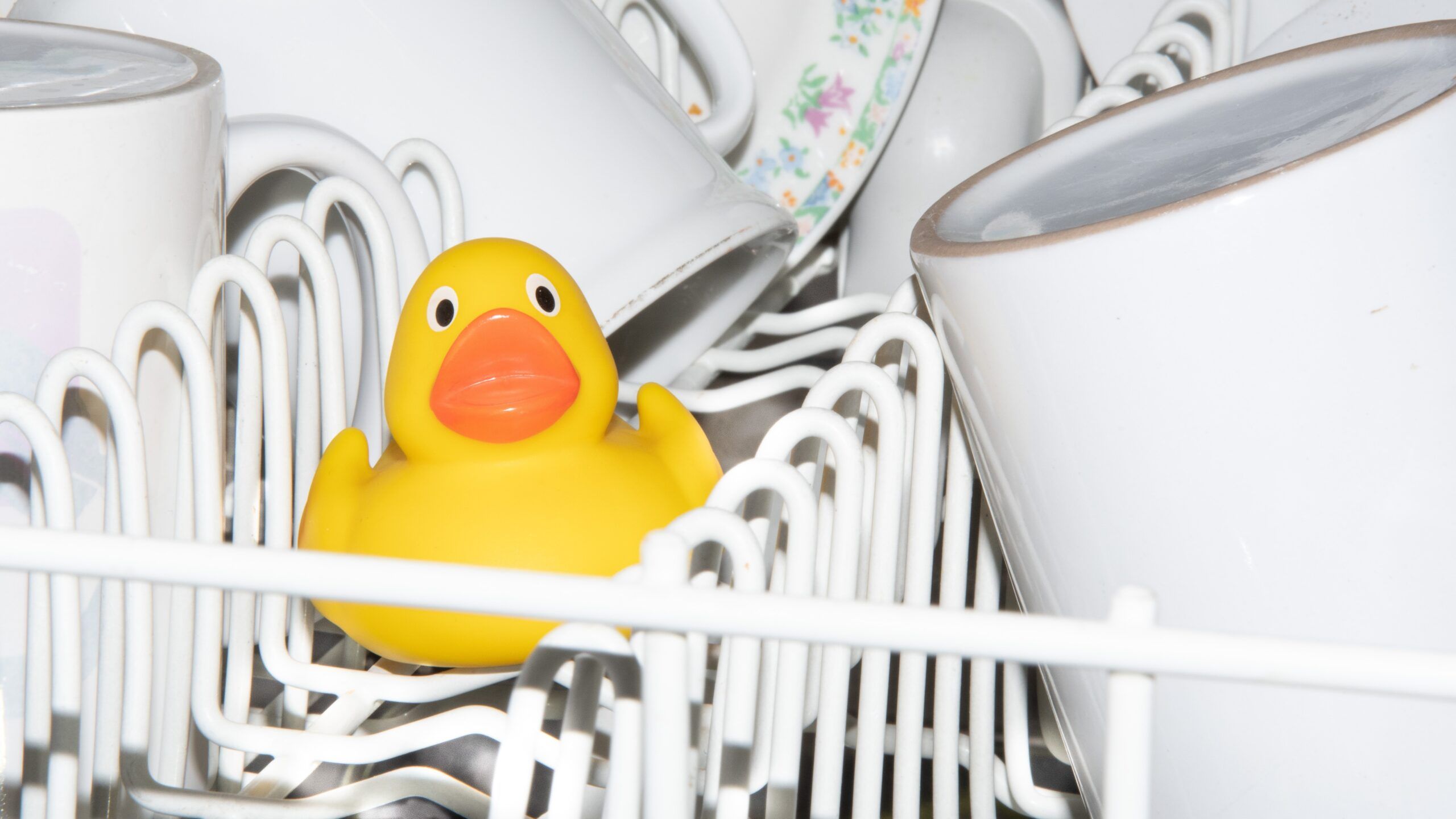
The Ultimate Guide: 15 Items You Should Avoid Putting in Your Dishwasher
Often hailed as a game-changer in the world of kitchen appliances, the dishwasher is a quintessential component that aids in maintaining a clean and orderly kitchen. While this remarkable invention is undeniably efficient in washing dishes, it is crucial to note that not all kitchen items are dishwasher-friendly. By understanding the nuances of what you can and cannot put in your dishwasher, you will not only extend its lifespan but also ensure that your kitchenware remains in optimal condition. This comprehensive guide, based on insights from the experienced technicians at Doctor Appliance, outlines fifteen items you should avoid putting in your dishwasher.
1. Large Food Scraps
Although dishwashers are designed to eliminate food residues, large food particles can pose a significant challenge. These pieces can clog your dishwasher’s drainage system or end up stuck to otherwise clean dishes. To circumvent this issue, it’s recommended to scrape off large food particles from your plates and utensils before loading them into the dishwasher. This simple yet essential practice ensures that your dishwasher functions optimally and reduces the likelihood of damage to the appliance’s delicate mechanisms.
2. Wooden Items
Wooden items like cutting boards, spoons, and items with wooden handles need special care. Dishwasher detergents are abrasive in nature and can scratch the surface of wooden items over time. Additionally, the heat produced during the drying cycle can cause wooden items to warp and crack. To maintain the longevity and aesthetic of your wooden kitchenware, it is best to hand-wash these items. Doing so not only preserves their structural integrity but also enhances their lifespan.
3. Cast Iron Cookware
Cast iron cookware, like skillets and pans, is revered for its durability and heat retention. However, these items require a specific cleaning regimen to maintain their quality. Dishwashers employ harsh detergents and an excess of water, which can strip away the seasoned oil from the cast iron, rendering it unusable. To keep your cast iron cookware in pristine condition, hand-wash these items and dry them thoroughly. Regularly seasoning them with oil prevents rusting and ensures a non-stick cooking surface.
4. Aluminum Cookware
Aluminum cookware such as pots, pans, and baking sheets can suffer damage when washed in a dishwasher. The dishwasher cycle can cause aluminum items to oxidize, resulting in a dull and darkened appearance. Furthermore, the detergents used can cause pitting and corrosion. To maintain the shine and functionality of your aluminum cookware, it’s best to hand-wash these items. Even if they are labeled as ‘dishwasher safe,’ it’s prudent to err on the side of caution to prolong their lifespan.
5. Copper and Precious Metals
Copper cookware is not only functional but also aesthetically appealing. However, maintaining its shine requires a little extra effort. Dishwasher detergents contain chemicals that can dull the bright sheen of copper and cause pitting and corrosion. It’s also crucial to hand-wash heirlooms made from precious metals like silver, gold, and bronze to prevent tarnishing and loss of their gleaming finish.
6. Non-stick Cookware
While many non-stick pots and pans are labeled as ‘dishwasher safe,’ the reality is that they can lose their non-stick properties due to the harsh detergents and high temperatures during the drying cycle in a dishwasher. To preserve the non-stick coating, consider hand-washing these items or at least skipping the drying cycle in the dishwasher. Once you notice the first signs of damage, such as scratching, chipping, or flaking, stop using the cookware to prevent the release of potentially harmful toxins into your food.
7. Ceramic Cookware
Ceramic cookware is a favorite among many due to its non-stick capabilities. This cookware typically features a ceramic coating bonded to a metal surface. Unfortunately, dishwasher detergents often contain bleach and citric acids that can be quite harsh on the ceramic finish. To avoid damaging the ceramic surface, hand washing is the preferred cleaning method for ceramic pots, pans, and other cookware.
8. Plastic Items
Plastic items, especially those made from softer plastics, should be handled with care when cleaning. High temperatures inside the dishwasher can warp or melt these items. While durable plastic items like food processor bowls, cutting boards, and mixing bowls may withstand the dishwasher, repeated cycles can cause them to become scratched and dull. Hand washing is the safer, recommended method to clean these items and maintain their appearance.
9. Kitchen Knives, Graters & Sieves
Knives, graters, and sieves have a common trait – sharp edges. These edges can be dulled by the abrasive detergents used in dishwashers. Additionally, the heat can loosen the handles of kitchen knives. Similarly, graters and sieves can nick the plastic coating on the dishwasher racks, leading to rust. To maintain the sharpness and integrity of these items, consider hand washing them with soapy water.
10. Fine China, Crystal or Painted Plates
Delicate items like crystal, and hand-painted plates demand special care. The harsh environment inside a dishwasher can cause these items to chip, fade, or lose their finish. Antique silverware with intricate detailing or bone handles should also be hand washed. In terms of delicate crystal items, the harsh detergents can cause lead crystals to become cloudy and pitted. If you must use a dishwasher, place these items on the top rack and position them between the tines to avoid damage.
11. Pressure Cooker Lids
Pressure cooker lids, particularly those used on stovetop pressure cookers or electric models like the Instant Pot, should never be washed in a dishwasher. Food particles and detergent can accumulate in the regulator or safety valves, potentially affecting their function. To clean these items, hand wash in warm, soapy water, rinse thoroughly, and dry well.
12. Acrylic Dishware
Acrylic or melamine dishware is popular due to its lightweight, non-breakable characteristics, and bright colors and patterns. However, the high water pressure, heat, and harsh detergents in a dishwasher can cause hairline cracks and ruin the imprints on these items. To keep these items looking new, it’s best to wash them by hand.
13. Gold-Coloured Flatware
While most silver utensils are dishwasher-safe, the same cannot be said for gold-colored flatware. The dishwasher cycle can cause these items to lose their vibrant color. As such, hand washing is recommended.
14. Plates You’ve Glued Back Together
If you’ve repaired a broken dish with glue or any other type of adhesive, it’s best to wash it by hand. The hot water and detergent in a dishwasher can dissolve the adhesive, causing the dish to fall apart.
15. Anything with Paper Labels
Items with paper labels can pose problems in a dishwasher. The paper and adhesive may come off during the cycle, potentially clogging the dishwasher drain and disposal system, or sticking to other dishes and creating a mess. Before washing containers, bottles, or jars in a dishwasher, remove all labels.
In conclusion, while dishwashers are a fantastic convenience in any kitchen, it’s crucial to know what items are suitable for machine washing and which ones require a gentler, hand-washing approach. Following these guidelines will help you get the best out of your dishwasher and prolong its lifespan. If you are unsure about the dishwasher-safety of a particular item, always err on the side of caution and choose to hand wash. Over time, you’ll find that this simple act of mindfulness can save you from potential damage to your dishwasher, as well as your beloved kitchenware.
Moreover, understanding the particularities of your dishwasher model can also be quite beneficial. Different models might have varied settings and capabilities. Some modern dishwashers have specific cycles meant for delicate items or even a setting for high-temperature sanitizing. Therefore, always check your appliance’s manual to familiarize yourself with its unique features and to optimize your usage based on your specific needs.
When it comes to the cleaning detergents, selecting a suitable dishwasher detergent also plays a significant role. Some detergents can be too harsh for certain materials, causing them to lose their luster or even get damaged. Therefore, always make an informed choice while purchasing dishwasher detergent and consider using mild soaps for delicate items.
Another important aspect to remember is to properly load your dishwasher. Incorrect loading can result in less efficient cleaning and even damage to your dishes. Typically, larger and heavily soiled items should go at the bottom, while lighter and more delicate items should be placed on the top rack. This ensures optimal cleaning and minimizes potential damage.
Regular maintenance of your dishwasher is also key to its longevity and effectiveness. Routinely check the filter and spray arms for any blockages and clean them out. Running a dishwasher cleaning agent through an empty cycle once in a while can also help in maintaining its performance.
In the grand scheme of things, the dishwasher is not just a kitchen appliance; it’s a time-saving device that has revolutionized the way we clean our dishes. However, its benefits can only be fully enjoyed when used correctly and with a clear understanding of what can and cannot go inside it.
Your kitchenware is an investment, and caring for it properly can ensure that it remains functional and visually appealing for years to come. So, the next time you’re about to load your dishwasher, take a moment to consider if the item in your hand is dishwasher-safe. It might just save you from the hassle of dealing with a damaged appliance or ruined kitchenware.
In sum, while the dishwasher is undoubtedly an impressive invention, it’s not a one-size-fits-all solution. By taking the time to understand what items are suitable for your dishwasher and learning the best ways to maintain it, you’ll be able to keep your kitchen running smoothly. Remember, the key to a long-lasting dishwasher and resilient kitchenware lies in knowledge, care, and a bit of manual cleaning.
Appliance repair in Burnaby, Appliance repair in New Westminster, Appliance repair in Vancouver, Dishwasher maintenance, Dishwasher repair, Doctor appliance, Freezer repair in Burnaby, Fridge repair in Burnaby, Oven repair, Port Coquitlam, Port Moody, Stove repair
